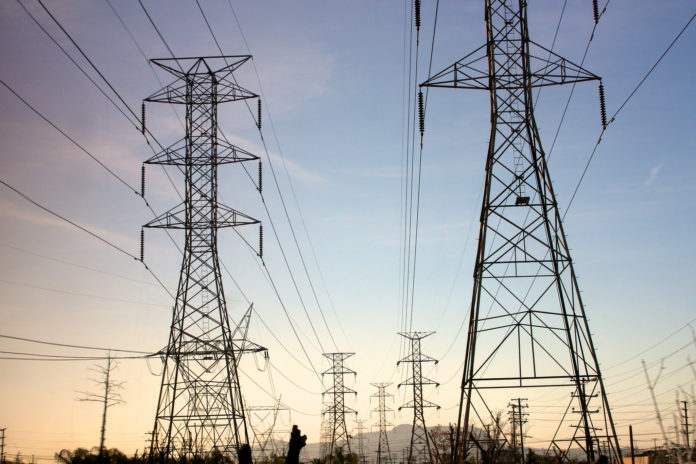The battle over electric rates escalated at the Capitol on Thursday as a coalition of business and consumer groups asked the state’s utilities to immediately reduce their rates by 10 percent.
The group, led by about a half-dozen large energy users, wants rates reduced while there is an effort to bring them down to competitive levels in the long term. The high rates, among other things, have been blamed on compliance with environmental regulations.
“This will allow us to have some small amount of relief — certainly nowhere close to our neighbors — while we go forward and study solutions so that Kansas can be regionally competitive with our neighboring states in electric rates,” said Overland Park lawyer Jim Zakoura, who represents the Kansas Industrial Consumers Group.
The industrial consumers group includes a number of large employers such as Cargill, Spirit AeroSystems and Coffeyville Resources Refining & Marketing. The group has been working with lawmakers since last year to lower electric rates.
The group also wants the Legislature to commission a rate study — separate from one just completed by the Kansas Corporation Commission — that will do more than just address the causes of the state’s high rates. They want a study that will come up with solutions for driving rates down so they’re competitive with neighboring states.
Gina Penzig, spokeswoman for the newly merged Westar and KCP&L, said Kansas already has a well-defined method for adjusting electric prices.
“To suggest that anybody can arbitrarily go in and make that adjustment without that process is contrary to state law,” she said.
As for the proposed study, Penzig said the company needs to see more of the specifics of the study that’s being suggested before it can respond.
There have been about $1 billion in rate increases since 2008 for the recently merged KCP&L and Westar Energy, according to a recent study by the Kansas Corporation Commission.
As of last October, Kansas electricity consumers paid an average of 10.67 cents per kilowatt hour, compared to 9.97 cents in Missouri, 9.35 cents in Iowa, 9.17 cents in Nebraska and 10.02 cents in Colorado, according to the latest report from the U.S. Energy Information Administration.
KCP&L’s rates have increased 70 percent since 2007, according to testimony presented to the Senate Commerce Committee last year. Westar Energy’s rates are up 67 percent during the same time frame.
Last session, the Senate passed a resolution calling on the Kansas Corporation Commission to identify new laws that would reduce retail electricity rates to regionally competitive levels. It did not pass in the House.
Last week, the KCC released a study that blamed increasing electric rates on capital investment, including compliance with federal environmental regulations, more coal-powered plants to meet consumer demand and construction of wind-powered facilities.
The industrial users group said the study didn’t do anything more than identify causes of high electric rates without suggesting solutions.
“We’re on a path that is not sustainable in Kansas,” Zakoura said. “The end result if we don’t do something is that you will see more businesses leaving, you’ll see less use of electricity, with the result being that the remaining people on the system — the fixed income people, the people who are running businesses trying to get by — will see their rates increase.”
The industrial consumers group is already backing a bill that would reduce the amount of money that a utility can recover from building transmission lines.
State law allows the utilities to recover transmission costs, including their own investments with a surcharge on the customer’s bill.
Supporters of the bill say the so-called transmission delivery charge on the Westar system increased for average residential customers to $18.67 a month from $4.50 a month in 2008.
The bill would allow the utility to still recover the full cost of the capital investment, but it would need to file a rate case with the KCC.
















